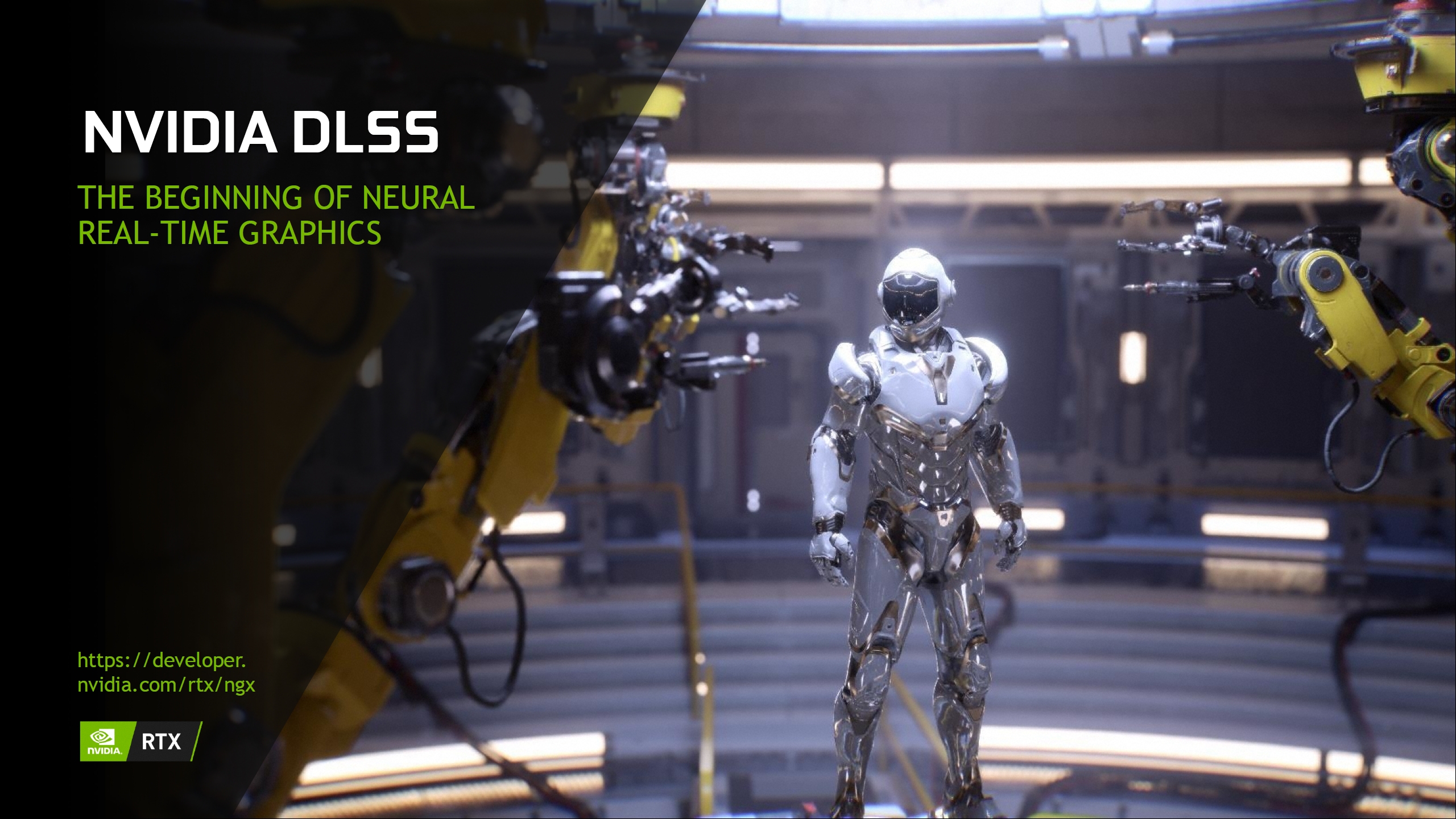NVIDIA recently began inviting developers to test the newest build for DLSS (Deep Learning Super Sampling) and submit their experiences and findings to the developer forum on NVIDIA’s site. NVIDIA DLSS is “a deep learning neural network that boosts frame rates and generates beautiful, sharp images for your games. It gives you the performance headroom to maximize ray tracing settings and increase output resolution. DLSS is powered by dedicated AI processors on RTX GPUs called Tensor Cores.”
NVIDIA is enabling developers to explore and evaluate experimental AI models for Deep Learning Super Sampling (DLSS). Developers can download experimental Dynamic-link libraries (DLLs), test how the latest DLSS research enhances their games, and provide feedback for future improvements.
Powered by dedicated AI processors on NVIDIA RTX GPUs called Tensor Cores, NVIDIA DLSS technology has already been adopted and implemented in over 100 games and applications. These include gaming franchises such as Cyberpunk, Call of Duty, DOOM, Fortnite, LEGO, Minecraft, Rainbow Six, and Red Dead Redemption, with support coming soon for Battlefield 2042.
What is interesting about the process is they are allowing developers to train and test using NVIDIA’s supercomputer. Through this utilization, they are hoping to continue to improve visual quality on more games and applications.
One of the key advantages of a deep learning approach to super sampling is that the AI model can continuously improve through ongoing training on NVIDIA’s supercomputer.
We are inviting the developer community to test the latest experimental DLSS models straight off the supercomputer, and provide us with your feedback. Your early input is important to helping us push the state of the art in AI graphics technology.
There are currently two new experimental DLSS Models for download here and here. The findings that NVIDIA receives may or may not be on the final DLSS releases to the public. NVIDA states that the two downloads “are not fully validated and may contain regressions.”
The first test will show the developer “improved object detail in motion,” as well as “particle visibility.” NVIDIA strived to improve “handling of moderate native instability,” while also minimizing ghosting on displays. The second offers an alternative improvement when it comes to ghosting in applications and games.
They are asking developer to send feedback to their “NVIDIA Developer Relations representative, email DLSS-Support@nvidia.com or post at forums.developer.nvidia.com.”

